Rugby World Cup final: New Zealand's unlikely title chance and ...
Both Sam Cane's New Zealand and Siya Kolisi's South Africa are seeking a record fourth Rugby World Cup title on Saturday
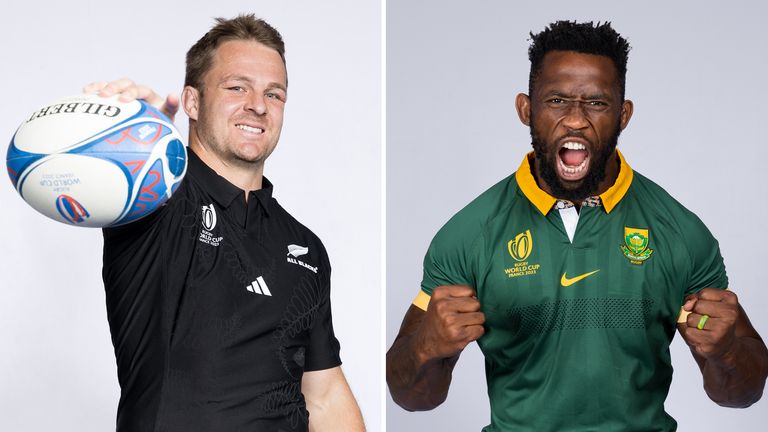
We look ahead to Saturday's Rugby World Cup final in Paris: New Zealand's unlikely title chance, and a risky South Africa bench that could win the trophy or lose it.
An unlikely All Blacks Rugby World Cup title shotWhen the casual sports fan thinks of rugby union, the first team that invariably comes to mind remains New Zealand's All Blacks.
A nation steeped in rugby history and success, of 90 per cent win records over decades, of fearsome players and winning runs, and three Rugby World Cup titles - only South Africa can claim as many.
Yet, under head coach Ian Foster since the 2019 World Cup in Japan, New Zealand have failed to win in some 13 Tests (11 losses, two draws).
Faf de Klerk and Handre Pollard start for South Africa in World Cup finalBongi Mbonambi to start WC final | 'Insufficient evidence' to prove Tom Curry allegationLast hurrahs and the dawn of a new era for England in RWC bronze finalBefore him, one has to look back over seven years of Tests to find 13 games which New Zealand failed to win (10 losses, three draws) between December 2012 and October 2019, and five of those came between September 2018 and October 2019.
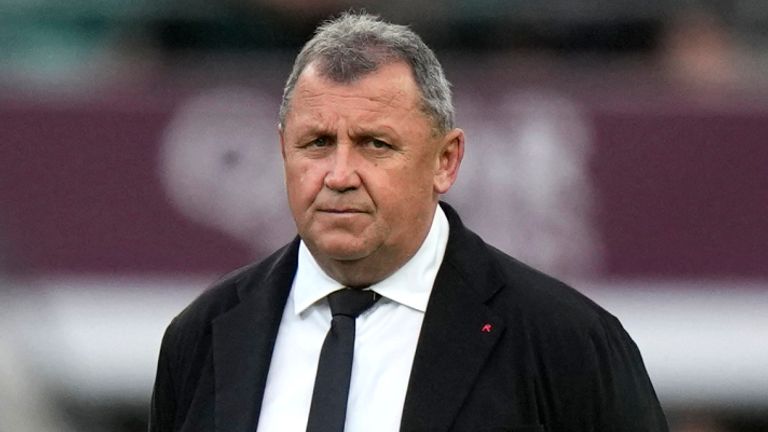
If the 2015 All Blacks vintage is the greatest side we have ever seen, then coming into this World Cup, the 2023 version had been labelled by many as one of the worst.
Under Ian Foster, the All Blacks have suffered 11 defeats and two draws in his four years in charge
The world's top three sides coming into the tournament had beaten the All Blacks regularly and comfortably: Ireland (three times), France (twice) and South Africa (three times), with the Irish even travelling to New Zealand and winning two Tests in a historic series victory.
Argentina have beaten New Zealand under Foster twice, having never tasted success against them before, and did so on Kiwi soil too in Christchurch, while Australia - who failed to make it out of their Rugby World Cup pool - also picked up a victory and draw.
Eddie Jones' England even fought from 25-6 down to claim an improbable draw at Twickenham in November 2022.
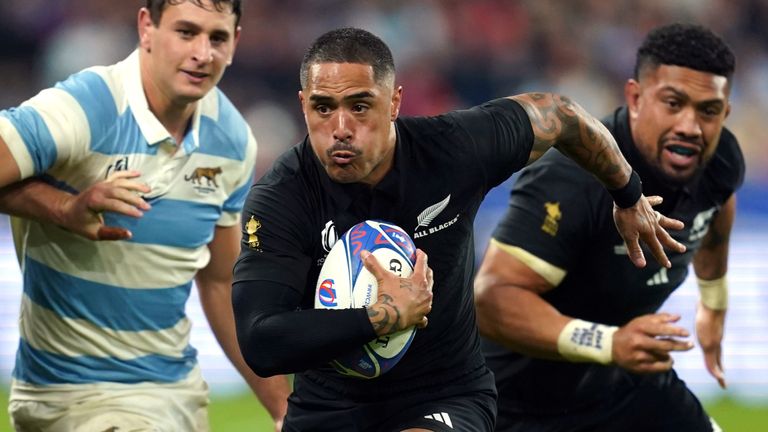
Foster's New Zealand lacked ruthlessness, power, organisation and set-piece consistency. So much so that the 58-year-old was told his job was up come what may at the World Cup in France - Crusaders head coach Scott Robertson will take over after the final.
Despite several defeats over the last few years, and poor form at the start of the World Cup, New Zealand find themselves in the final
When they fell to an opening night 27-13 defeat to hosts France in Paris back in September - one in which they were extremely poor during the second half - and had a quarter-final vs one of Ireland or South Africa on the horizon, there were not many people, if any, betting on them as potential winners.
Dominant wins over Namibia, Italy and Uruguay followed, giving them morale-boosting confidence despite the sub-standard calibre of opposition, and once Ireland beat South Africa and Scotland in Pool B, a date vs Andy Farrell's Ireland was set. A side which had beaten Foster and co three times from their last four meetings.
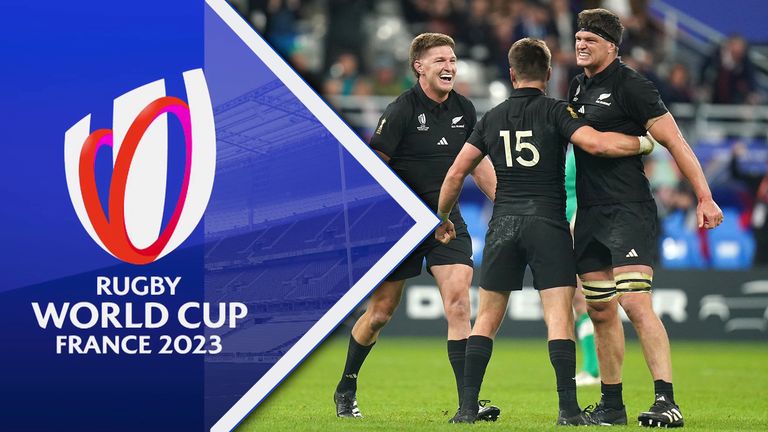
Yet, in a role reversal of history in the sport, the All Blacks produced a performance well above themselves and anything they have shown for years, while Ireland failed to perform to their maximum on the day, and couldn't land the crucial blow when it was presented to them late in the second period.
Please use Chrome browser for a more accessible video player
Watch the action from New Zealand’s epic win against Ireland earlier in the tournament
New Zealand showed guts, a brilliant breakdown performance and speed of play with ball in hand. Such was the lob-sided nature of the draw, they were then presented with Argentina in the semi-finals - a far more straightforward task than Ireland proved.
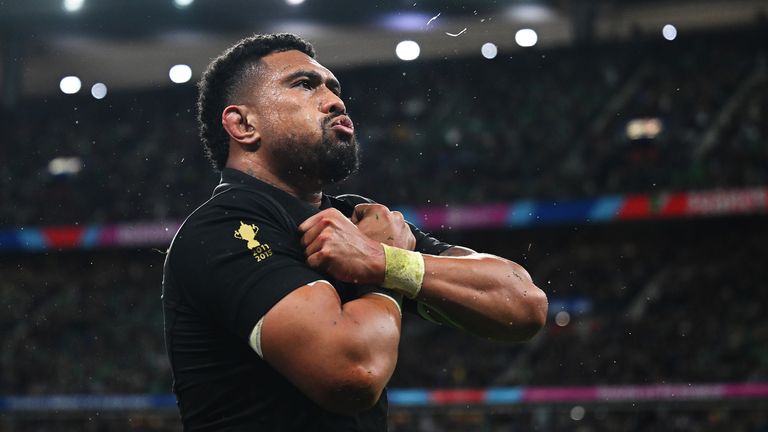
Perform to the same standard, and New Zealand will fancy themselves of claiming a record fourth World Cup triumph vs the Boks. Even Kiwis wouldn't have been saying that last month.
All Blacks No 8 Ardie Savea has been in sensational form
In their final World Cup warm-up Test before the big show, South Africa did something nobody had ever done in rugby before. They named a replacements bench with seven forwards and just one back.
Convention sees sides pick a 5-3 split of forwards to backs, encompassing loosehead prop, hooker, tighthead prop, second row, back-row, scrum-half, fly-half and outside-back cover.
When South Africa won the last World Cup in 2019, they did so mainly by using a 6-2 split on the bench, allowing them to change both second rows instead of just one as part of an effort to push hard at the scrum and lineout maul in the second half of Tests.
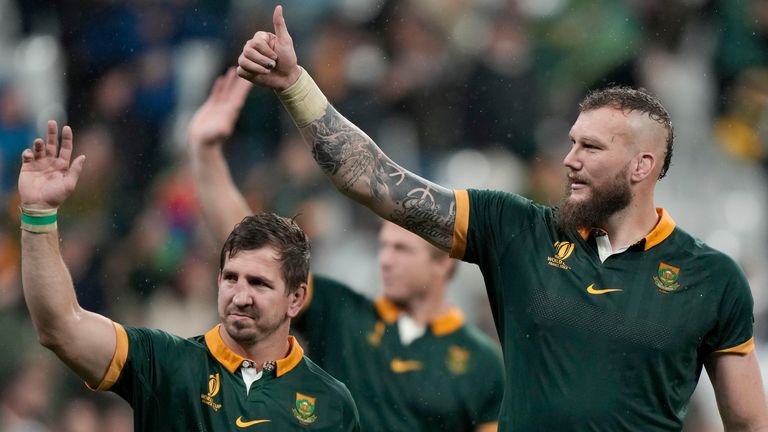
The likes of Kwagga Smith (left) and RG Snyman (right) have been central parts of the South Africa 'bomb squad' off the bench
But in August, they named seven forwards as replacements, with two props, a hooker, two second rows and two back-rows all coming on into a near-entirely fresh scrum. Their only back was scrum-half Cobus Reinach. The opposition? New Zealand at Twickenham. The result? A whopping 35-7 Springbok victory. It was a record All Blacks defeat.
It left South Africa's controversial Director of Rugby Rassie Erasmus feeling he had reinvented the game, and now possessed a sort of cheat code. It left some questioning the safety of seven fresh players from the most powerful side in the world entering a second-half scrum, and many others to point out the huge risk for SA it also entails.
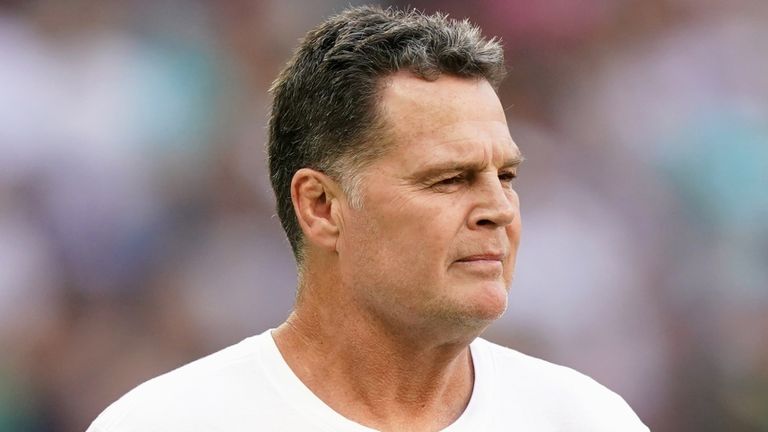
South Africa's controversial Director of Rugby Rassie Erasmus first picked up a 7-1 bench split of forwards to backs vs New Zealand in August
The caveats to their August win vs New Zealand is that Scott Barrett was red carded in the first half, and the All Blacks had only just arrived off the plane to London. Erasmus and co deployed the same tactic against Ireland in Pool B and it blew up in their faces.
Their fresh forwards failed to have the desired impact, with Ireland banking a 13-8 success, while fly-half Manie Libbok was forced to remain on for the entire 80 despite kicking poorly, and replacement hooker Deon Fourie - ordinarily a back-row - threw a five-metre attacking lineout crooked.
After that clash, the 7-1 looked to have been banished by South Africa. Against Tonga in the pools, France in the quarters and England in the semis, the Springboks went with a 5-3 split each time.
Please use Chrome browser for a more accessible video player
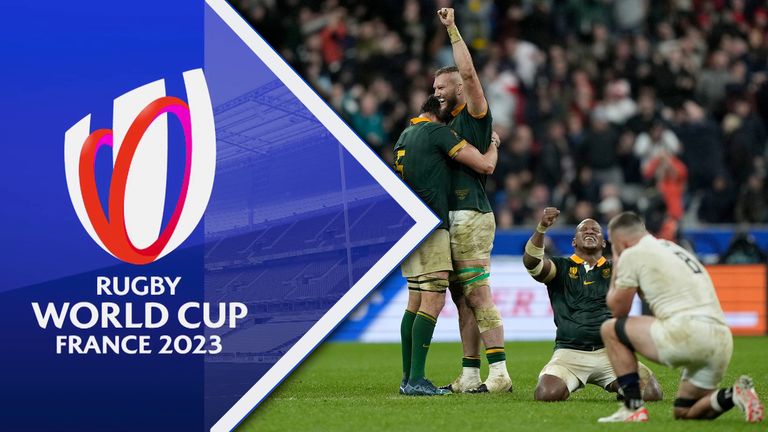
Action from Saturday's South Africa victory over England to reach the Rugby World Cup final
Please use Chrome browser for a more accessible video player
World Rugby has concluded there is 'insufficient evidence' to suggest that South Africa's Bongi Mbonambi racially abused England's Tom Curry
In predictably dramatic fashion, Erasmus has brought it back for the final vs the All Blacks, though, potentially looking to play mind games after August's result.
And not only has the risky 7-1 replacements split been brought back, it has been brought back in an even riskier form.
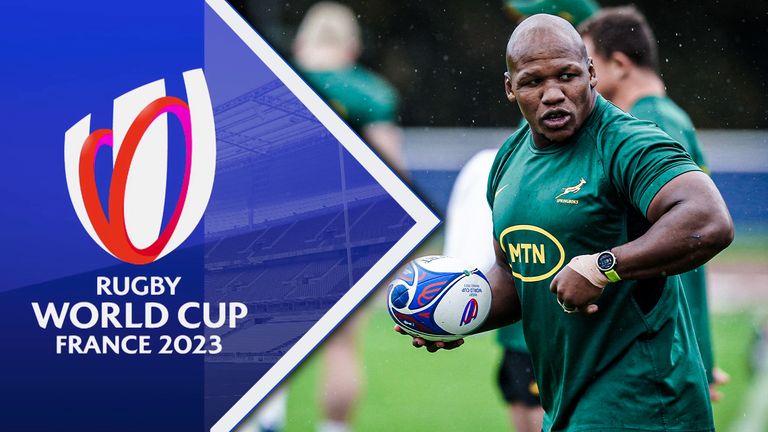
Indeed, the sole back on the bench isn't even a scrum-half, but rather back-three Willie le Roux.
That means, should Faf de Klerk go down with an injury, wing Cheslin Kolbe or Le Roux might have to come on and play the specialist position that is scrum-half for the very first time. Equally, if South Africa centres Damian de Allende and Jesse Kriel get injured, their back division will be all over the place.
South Africa are hoping their backs can avoid injury, and their seven forwards can make the difference in late scrums and tight exchanges
If De Klerk was forced off, five of the seven back positions would likely require realignment: Kolbe to scrum-half, Kriel to the wing, full-back Damian Willemse to inside-centre, No 12 De Allende to outside-centre, and replacement Le Roux to full-back. A second injury in the backs would merit a fiasco.
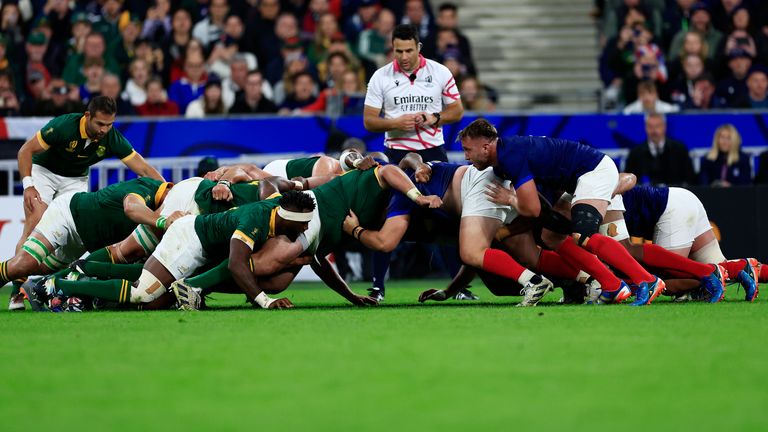
It's laden with so much risk as to be justifiably labelled crazy. But South Africa's coaching staff are banking on a clean bill of health for the 80 minutes among their backs, and a winning impact from their forwards.
It's a bench that could end up winning the World Cup in the closing stages, but also a selection which could cause all manner of self-imposed disruption, and quite easily lose it.















































